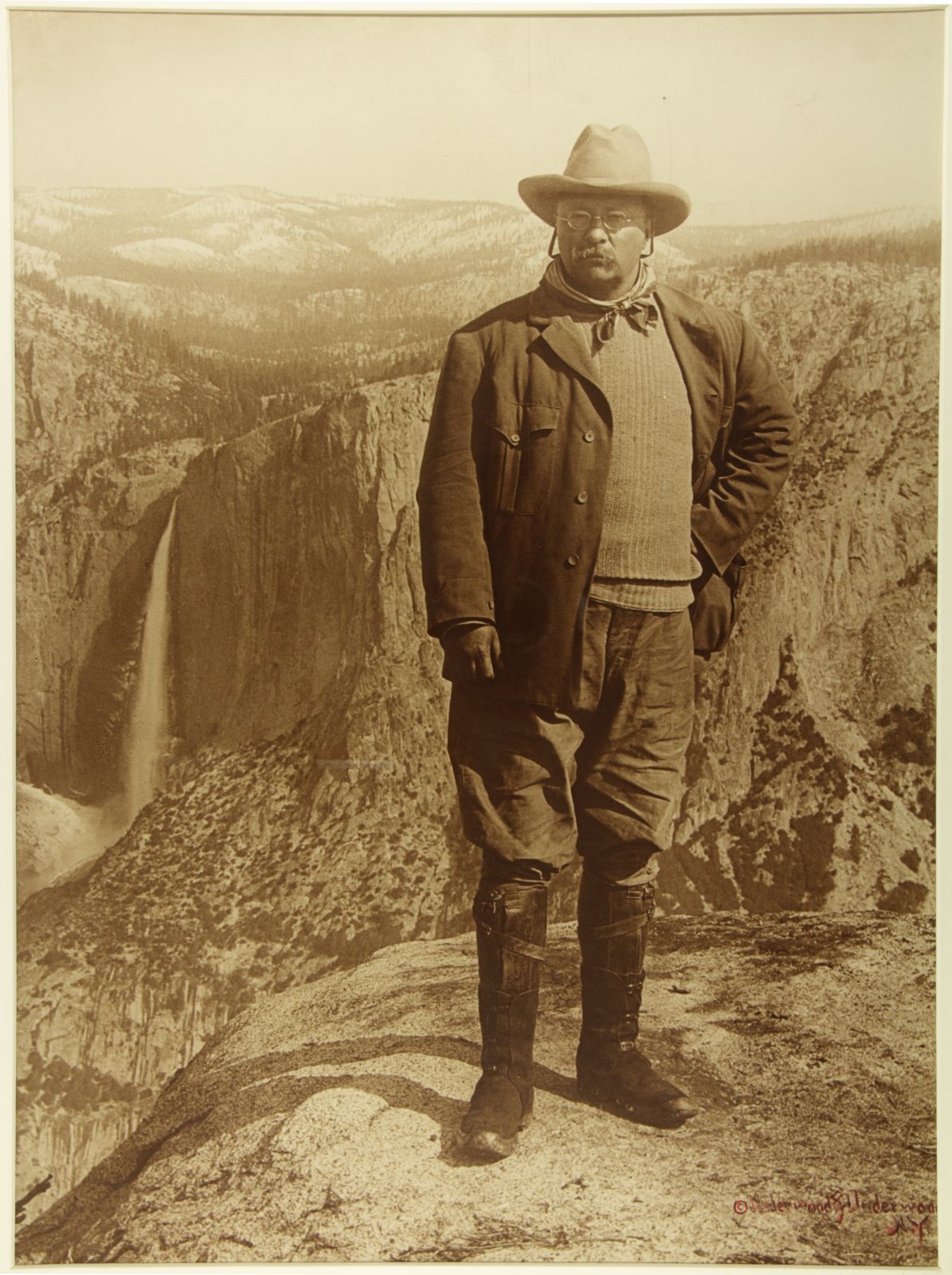TR Encyclopedia
Conservation
Theodore Roosevelt maintained a life-long commitment to preserving natural resources. He played a key role in the creation or enlargement of 150 national forests, the creation of 51 federal bird refuges, four national game preserves, six national parks, and 18 national monuments.

Antiquities Act of 1906
The Antiquities Act of 1906 gave the President authority to set aside historic landmarks and other objects of historic and scientific interest, protecting them from looting and destruction. President Roosevelt used the Act to designate many sites, including the Grand Canyon, as national monuments.
Bell, John Graham
John Graham Bell (1812-1889) was the taxidermist from Tappan, New York, who taught young Theodore Roosevelt how to preserve animals for collection and display and who may have first mentioned to him the bison roaming the Dakota prairies.
Bison Conservation
By the end of the 1800s, the American bison population was rapidly approaching extinction due to a combination of factors, including resource exploitation and misguided policy. In order to prevent their total extinction, public and private efforts had to cooperate to reserve areas of land where bison populations could be reintroduced and preserved.
Boone and Crockett Club
The Boone and Crockett Club was the brainchild of Theodore Roosevelt and George Bird Grinnell, the editor of the influential magazine Forest and Stream.
Burroughs, John
John Burroughs was one of several naturalists whom Theodore Roosevelt knew because of his role in the evolving conservation movement of the early twentieth century.
Grinnell, George Bird
George Bird Grinnell was raised in New York where his family lived for a time on the former estate of John James Audubon.
Muir, John
John Muir crusaded to stop the despoilment of natural places by western cattle and sheep ranchers and was instrumental in the creation of Yosemite and other national parks such as Grand Canyon, Petrified Forest, Mount Rainier, and Sequoia. His efforts culminated in the founding of the Sierra Club in 1892.
Pinchot, Gifford
Gifford Pinchot promoted conservationism—the efficient management of natural resources by trained professionals. He was the first head of the U.S. Forest Service, appointed by President Theodore Roosevelt.